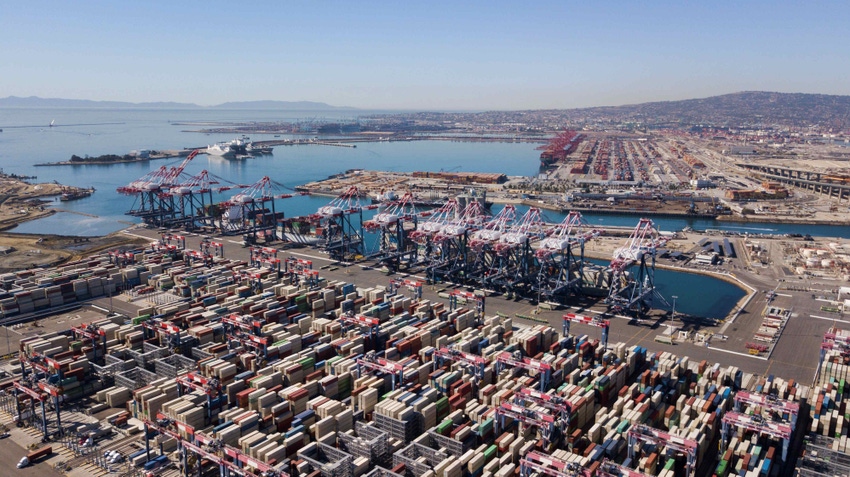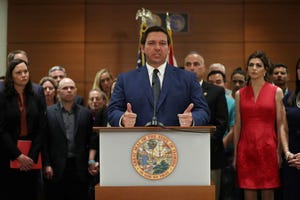Intervention needed in West Coast port labor talks
Legislative Watch: Labor negotiations stalled; expanding processing capacity; Senate votes to stop WOTUS; importation of Paraguay beef.

Labor negotiations have been stalled for 10 months between the Pacific Maritime Association and the International Longshore and Warehouse Union. Union members have been working without a contract for eight months.
Over 200 national and state agricultural and business organizations wrote President Biden urging the administration to work with the two parties stating, "It is imperative that the administration work with the parties to quickly reach a new agreement and ensure there is no disruption to port operations and cargo fluidity.
"As we have witnessed, significant cargo flows have shifted away from the West Coast ports because of the uncertainty related to the labor negotiations. While there certainly are other issues impacting the West Coast ports, many cargo interests have expressly stated that they shifted cargo as a result of the negotiations. That cargo will not return to the West Coast until after a contract is final and approved by both parties. The longer there is no ratified contract only increases the probability that some portion of the freight will never return to the West Coast ports."
Those signing the letter included the American Farm Bureau Federation, American Feed Industry Association, American Trucking Association, Beer Institute, National Corn Growers Association, National Milk Producers Federation, National Pork Producers Council, National Restaurant Association, National Retail Federation, U.S. Chamber of Commerce and U.S. Meat Export Federation.
West Coast ports are essential because the U.S. agriculture's largest international markets are in the Asia Pacific: China, Japan, Korea and Vietnam.
Livestock groups support expanding processing capacity
Livestock groups are supporting legislation (H.R. 530 and S. 813) that would allow livestock market owners to own or invest in small or regional packing facilities.
In a letter to the leadership of the Senate and House Agriculture Committees, the associations said, "Supply chain challenges experienced in the livestock packing sector over the last several years highlighted the need to increase U.S. livestock packing capacity. It became readily evident during the early COVID-19 pandemic that current processing capacity must run full time to avoid a backlog of livestock, which was not possible in the early weeks and months of the pandemic. This limited processing capacity relative to the available supply of livestock also harms the bargaining power of livestock producers seeking to have animals processed. In addition, the demand for local processing and locally sourced meat have increased."
Those signing are the American Farm Bureau Federation, American Sheep Industry Association, Livestock Marketing Association, National Cattlemen's Beef Association, National Pork Producers Council and United States Cattlemen's Association.
Current law prohibits livestock auction owners from owning a livestock packing facility or a meat marketing business.
Senate votes to stop WOTUS rule
The Senate this week voted to overturn the administration's Water of the United States rule by a vote of 53-43. President Biden has promised to veto the House and Senate resolution. The vote is far short of the necessary votes needed to override a Presidential veto.
USDA proposes allowing importation of Paraguay beef
The USDA's Animal and Plant Health Inspection Service is proposing a rule that would allow for the importation of fresh (chilled or frozen) beef from Paraguay.
The National Cattlemen's Beef Association opposes the proposed rule by saying, "USDA's proposed rule to allow Paraguayan beef imports into the U.S. is based on 9-year-old data and site visits that occurred in 2008 and 2014. Paraguay has a history of outbreaks of foot-and-mouth disease (FMD), and we cannot jeopardize the safety of U.S. consumers and the health of our U.S. cattle herd with outdated information."
The deadline for public comments on the proposed rule is May 28.
About the Author(s)
You May Also Like



